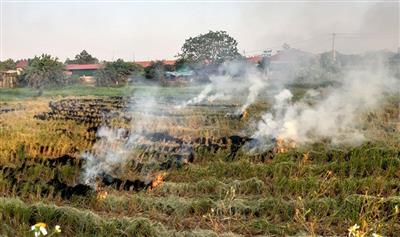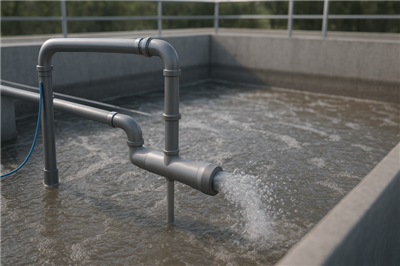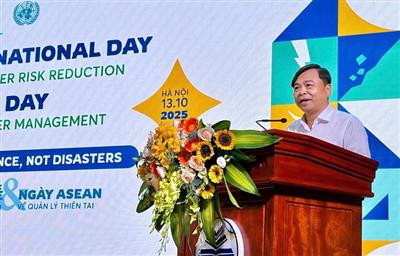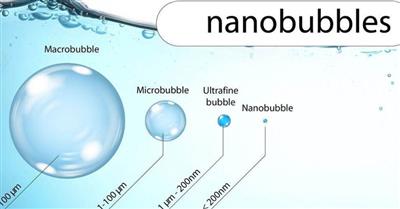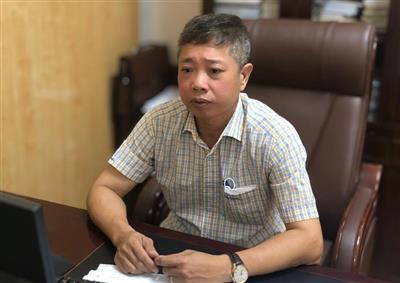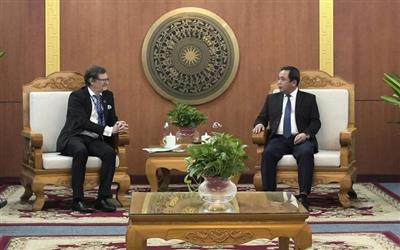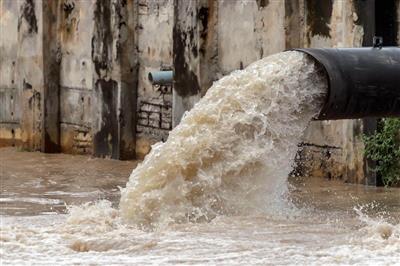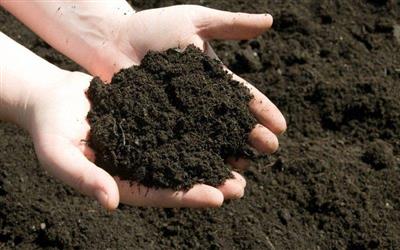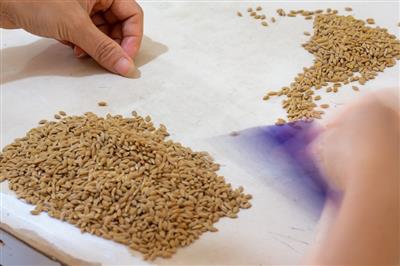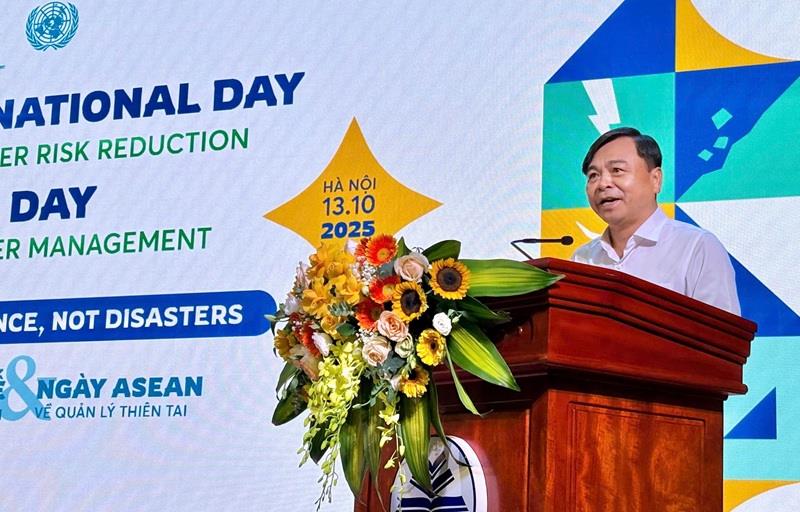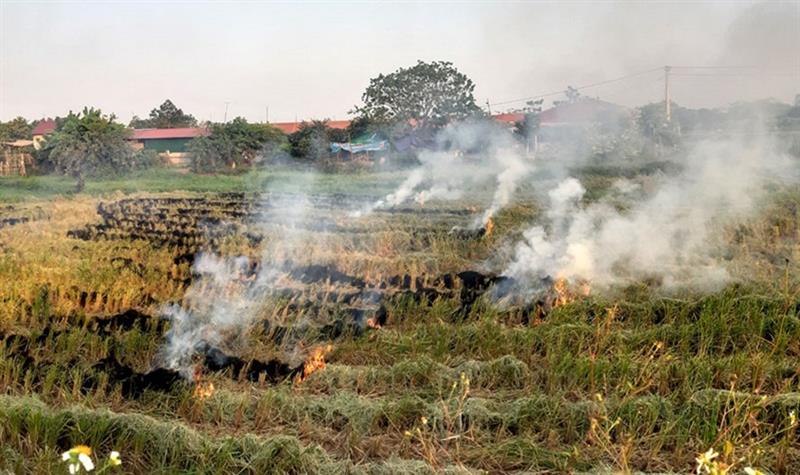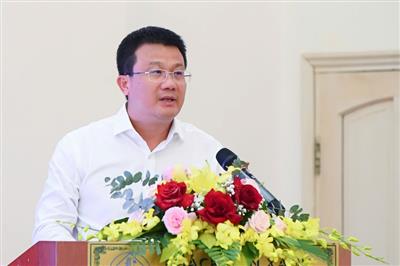
Vietnam and the Republic of Korea foster cooperation on carbon market development and circular economy
27/06/2025TN&MTOn June 27, 2025, in Hanoi, Deputy Minister of Agriculture and Environment Le Cong Thanh held a bilateral meeting with Mr. Jeon Jongsoo, Chairman of ECOEYE Group (Republic of Korea). The meeting took place as Vietnam prepares to launch a pilot phase of its carbon credit market, creating opportunities for comprehensive cooperation in environmental protection, recycling, and low-emission technologies between the two countries.

Deputy Minister Le Cong Thanh meets with ECOEYE Chairman Jeon Jongsoo to discuss carbon market cooperation, Hanoi, June 27, 2025
Towards an effective and sustainable carbon market
At the meeting, Deputy Minister Le Cong Thanh emphasized that Vietnam and the Republic of Korea are strengthening their Comprehensive Strategic Partnership, in which economic and environmental cooperation remains a top priority. “Vietnam is facing a range of environmental challenges in the course of its economic development. Therefore, we are particularly interested in ECOEYE’s work in the carbon market and circular economy,” he said.
The Deputy Minister acknowledged ECOEYE’s technical capacity, global network, and strategic vision. As a pioneering Korean enterprise in the carbon credit market, environmental technology, and recycling of ozone-depleting substances, ECOEYE has demonstrated strong potential for partnership. He noted that Vietnam is finalizing its institutional framework in preparation for piloting a domestic carbon market by the end of 2025. At the same time, the country is promoting extended producer responsibility (EPR), source segregation of waste, and investment in the recycling sector.
Based on these priorities, the Deputy Minister proposed that ECOEYE expand its cooperation into the area of electronic waste management. He also expressed hope that the company would take a leading role in developing Vietnam’s recycling and carbon credit markets, particularly in areas involving advanced technologies such as F-gas recovery, plastic waste recycling, and composite material separation.
.jpeg)
Deputy Minister Le Cong Thanh highlights Vietnam’s interest in ECOEYE’s carbon market and circular economy initiatives
In response, Mr. Jeon Jongsoo affirmed ECOEYE’s long-term commitment to supporting Vietnam’s green transition, emission reduction, and circular economy development. He shared that ECOEYE currently accounts for approximately 40% of the total carbon credit trading volume on Korea’s Emissions Trading Scheme (Korea ETS), with over 220 projects implemented in 15 countries. The company also serves as a strategic partner to the Korean Ministry of Environment and several major corporations including Samsung, Hyundai, SK, Posco, and LG Chemical.
Expanding cooperation on recycling and emission reduction
A key outcome of the visit was the signing of a Memorandum of Understanding between ECOEYE and the Environment Department under the Ministry of Agriculture and Environment of Vietnam. The agreement aims to strengthen cooperation in carbon credit development, waste management, ozone layer protection, and the promotion of a circular economy in Vietnam.
ECOEYE is currently focusing on technologies such as chemical recycling of plastic waste, treatment of e-waste and F-gases, agricultural waste management, and resource regeneration. These areas align well with Vietnam’s current environmental policy directions. Mr. Jeon underlined that EPR is a core policy instrument that can improve recycling efficiency and enhance the recovery of post-consumer resources.
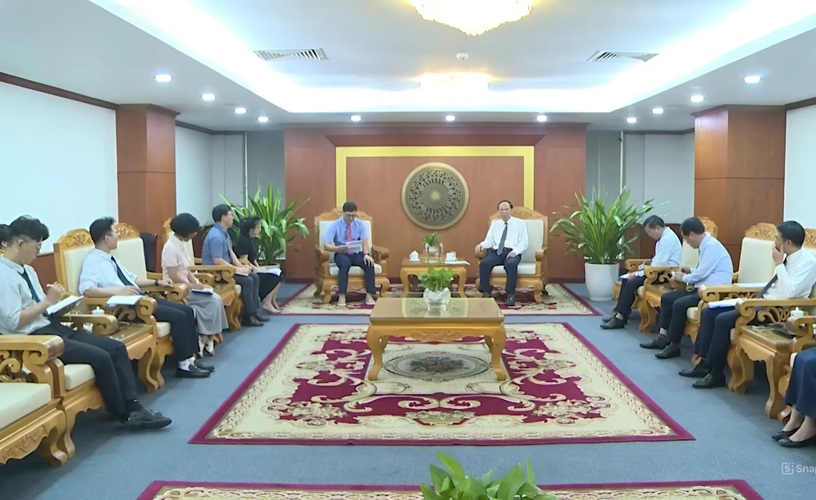
Both sides agreed to enhance cooperation toward a transparent carbon market aligned with circular economy and green transition goals
In Vietnam, ECOEYE’s local subsidiary—Ecoeye Co., Ltd.—is deploying two main technologies: recovery and recycling of refrigerants from used cooling equipment for reuse as virgin-like materials; and chemical separation of layers in composite plastic materials, enabling the recycling of tarpaulins, airbags, and banners. These technologies have considerable potential to reduce greenhouse gas emissions and form a technical basis for future carbon credit projects.
As part of the ENTECH Vietnam 2025 international exhibition, ECOEYE also hosted a technical session on the F-gas supply chain. The session gathered enterprises involved in refrigeration, air conditioning, and waste treatment. ECOEYE, along with partners such as GTC Vietnam and Sunjin Environment, introduced methodologies and technologies for recovering and recycling F-gases—an important initiative in reducing emissions from the cooling sector.
Concluding the meeting, both sides agreed to continue expanding their cooperation, sharing expertise, and providing technical support. These joint efforts are expected to contribute to the development of a transparent and effective carbon market in Vietnam, aligned with circular economy models and green transition goals, in accordance with the sustainable development commitments of both governments.
Minh Thao




